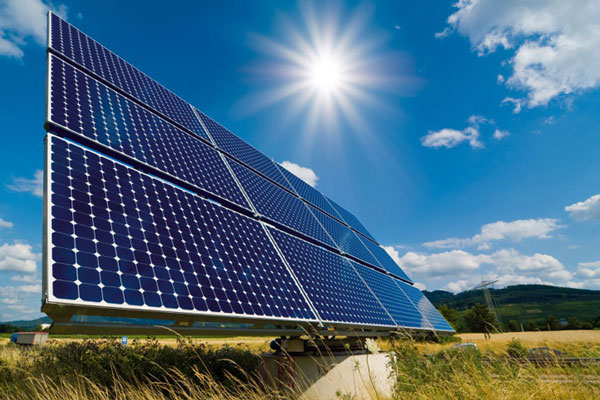Vietnam is considered the second biggest potential market in Southeast Asia for solar power.
| Vietnam has great potentials for solar power |
The electricity demand in Vietnam is predicted to increase by 11 percent per annum, or 20 billion kwh in the next years.
Under the 2011-2020 national electricity development plan, Vietnam would have 850 MW of solar electricity by 2020, 4,000 MW by 2025 and 12,000 MW by 2030.
In April 2017, the PM signed a decision on encouraging the development of solar projects in Vietnam. Under the decision, the Electricity of Vietnam (EVN) has the responsibility of buying all the electricity output to be generated by solar power projects for 20 years at least. The electricity purchase price is VND2,086 per kwh, or 9.35 US cents.
| The Electricity of Vietnam (EVN) has the responsibility of buying all the electricity output to be generated by solar power projects for 20 years at least. The electricity purchase price is VND2,086 per kwh, or 9.35 US cents. |
However, despite the encouragement and tax incentives, investors still find it risky to develop solar power projects.
Under a circular issued by the Ministry of Industry and Trade (MOIT), EVN will have to buy electricity from the projects which connect the national grid and become commercially operational prior to June 30, 2019.
This means that in order to enjoy the preferential sell price set by MOIT, investors will have only two years to implement their projects. Meanwhile, they have too many things to do, from completing documents and applying for licensing to clearing sites.
In addition, investors have to fulfill procedures and submit documents to MOIT for the approval of the solar power development programming. Small-scale projects (less than 50 MW) must be approved by MOIT, while big-scale projects (more than 50 MW) must get the PM’s approval.
Investors also note that the PM’s Decision No 11 is only valid in the period from June 1, 2017 to June 30, 2019. This means that the electricity sales and selling price after June 30, 2019 remain unclear.
Monika Bieri from SERIS said at the workshop titled The Solar Future Vietnam on November 30 that Vietnam is the second largest potential market in South East Asia, just after Indonesia.
Le Viet Nga, who worked in the oil and gas sector for many years, now director of an enterprise in Vung Tau City, is considering developing a solar power project, because the oil & gas sector is facing difficulties, while solar power has great potential.
However, Nga said he will try with a small project and there is no need to ask for a license from MOIT.
Nguyen Duc Cuong from the Energy Institute of MOIT also noted that the biggest challenges are administrative procedures to ask for permission to develop projects and add solar energy projects to the national electricity development program.
Chi Mai / VietnamNet